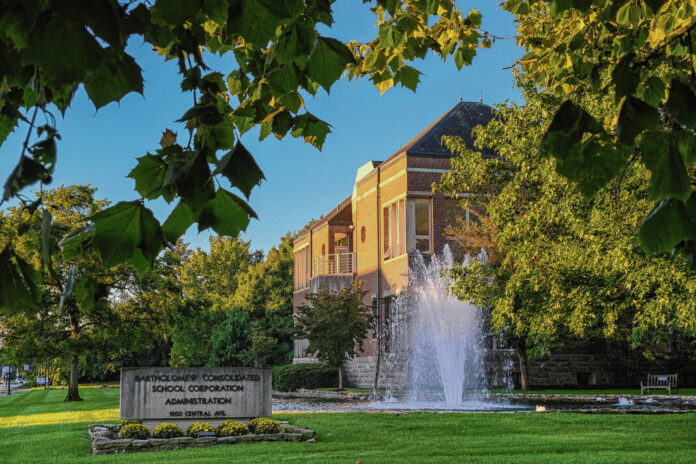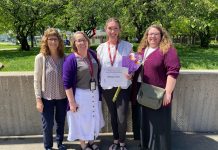COLUMBUS, Ind. — Bartholomew Consolidated School Corp. is considering seeking a capital referendum to ask voters’ permission finance a number of facilities projects — however, unlike the recent operating referendum, school officials say that this time, the tax rate would not increase.
The subject arose during a strategic planning session on March 24, as school officials discussed projected enrollment and facilities needs with school board members.
Currently, the school corporation is in the middle of remodeling Parkside Elementary, which is expected to be the first of several renovations to BCSC buildings.
“We have two problems or opportunities in the district,” said Director of Operations Brett Boezeman. “One is the fact that we do have some enrollment things to be mindful of. Also, we have buildings that need improvements and renovated.”
Most BCSC schools were built in the 1950s and ’60s, he said. The newest is Central Middle School, which was built in 2007. Out of the district’s elementary schools, Clifty Creek is the newest, built in 1983.
Superintendent Jim Roberts mentioned that the school corporation purchased land on the west side some time ago with the expectation that there might be a need for another elementary school there. He said that it may be time to revisit this possibility, given growth on the district’s west side.
In discussing funding options for BCSC’s facilities projects, Assistant Superintendent of Financial Services Chad Phillips presented the possibility of putting a capital referendum on the ballot. This type of referendum is also referred to as a “controlled project” referendum, as opposed to an operating referendum — which is what local voters approved in June of 2020.
According to the Indiana Department of Local Government Finance, a controlled project generally includes any project financed by bonds or a lease payable by property taxes. A controlled project referendum process applies to the following types of controlled projects:
- Any school building for K-12 education that will cost “more than the lesser of $18,318,651 (for a preliminary determination made in 2023) or 1% of the total gross AV (assessed value) of property within the political subdivision on the last assessment date, if that amount is at least $10,000,000.”
- Any other controlled project by a political subdivision that falls into the above price range.
- Any other controlled project that, when combined with the cost of all other controlled projects a political subdivision has decided to fund via bonds or a lease within the past year, will cost the subdivision more than $25 million.
Ballot language for a controlled project referendum must be approved by the Department of Local Government Finance before the question can be placed on a ballot. The department is also responsible for determining the tax rate increase that would occur if the controlled project is approved.
On the other hand, a school board may choose to seek an operating referendum — also known as a school tax levy referendum — if that body has determined that the corporation “1) cannot carry out its public educational duty unless it imposes a referendum tax levy or (2) that a referendum tax levy should be imposed to replace property tax revenue that the school corporation will not receive because of the application of circuit breaker credits.”
For both types of referendums, the property taxes approved by voters are not subject to property tax caps.
For the complete story, see Tuesday’s Republic.





